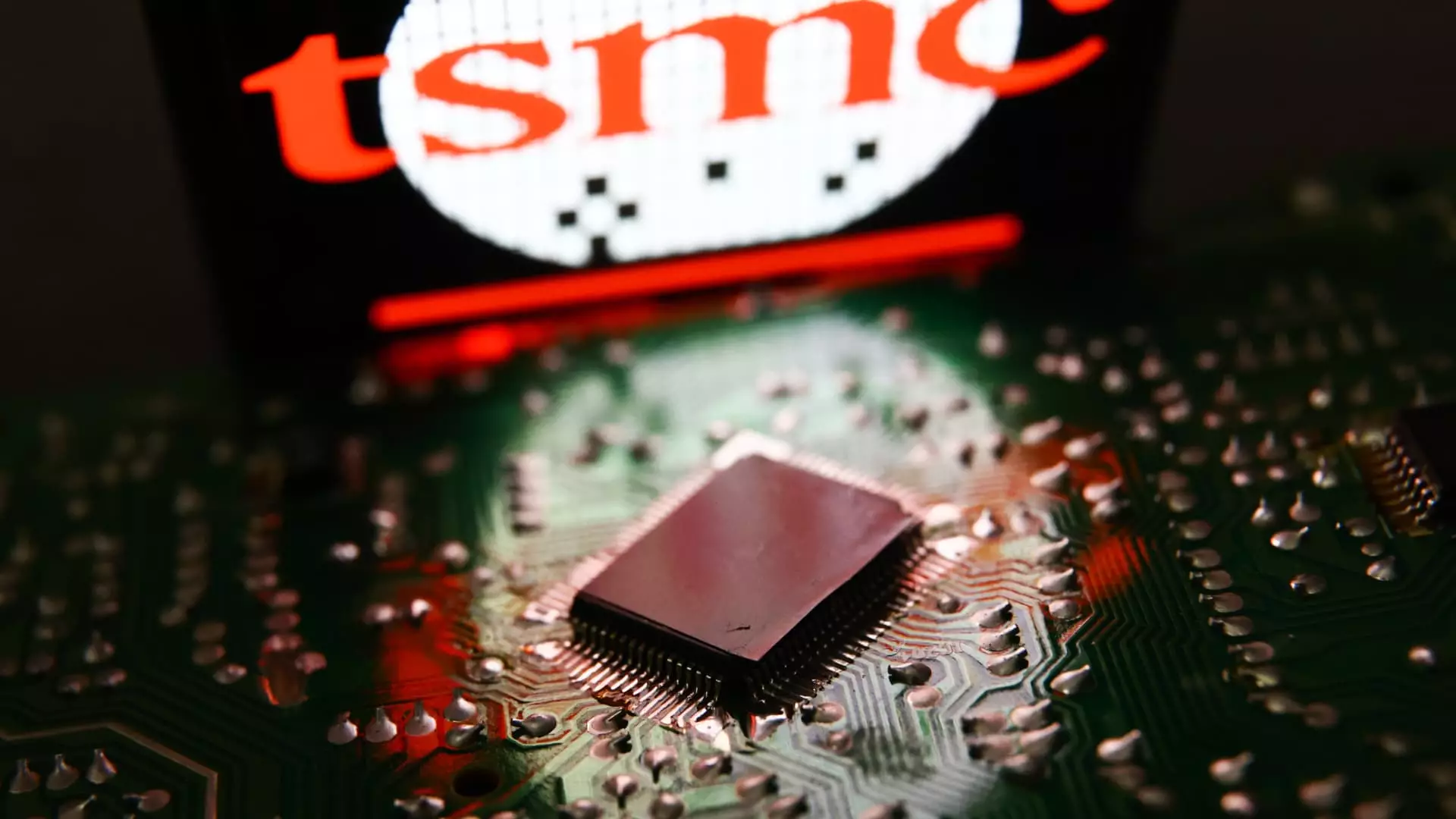Recent developments in international trade policy mark a significant shift in the dynamics of the semiconductor industry, particularly involving Taiwan Semiconductor Manufacturing Co (TSMC) and its ties to China. The U.S. Department of Commerce has issued new restrictions aimed at curtailing the shipment of advanced chips to Chinese customers that are crucial for artificial intelligence (AI) applications. This action has far-reaching consequences not just for TSMC but for the broader landscape of global technology trade.
The Commerce Department’s edict, which affects chips designed with 7 nanometer technologies or more sophisticated architecture, represents an effort to hinder China’s advancements in AI. These specific chips are instrumental in powering AI accelerators and graphics processing units (GPUs), technologies critical to the development of cutting-edge AI systems. This recent crackdown is reportedly in reaction to the discovery of TSMC chips within a Huawei AI processor—a violation of current U.S. export controls.
This escalation in export controls means that TSMC must now suspend shipments to several Chinese clients, effectively reshaping its market dynamics. Notably, this includes a suspension of products for chip designer Sophgo, which itself has come under scrutiny following the revelations about its potential involvement in the Huawei situation.
TSMC’s leadership is at a crossroads as it re-evaluates its strategy vis-à-vis its Chinese clientele. The gravity of the new rules is underscored by TSMC’s assertive stance regarding compliance; despite the obvious commercial implications, the company has reiterated its commitment to abide by U.S. laws. As a firm recognized for its high-tech prowess, the possibility of losing pivotal contracts with Chinese businesses could substantially affect TSMC’s revenue streams.
The U.S. government’s maneuver to deploy “is informed” letters provides it with expedited mechanisms for imposing new licensing requirements on specific companies, allowing for a swift response to perceived threats from foreign competitors. This particular strategy is revealing of a broader trend in U.S. economic policy, where national security concerns are driving a more aggressive regulatory environment.
Concurrent to these developments, there are growing apprehensions among U.S. lawmakers—both Republican and Democrat—regarding the inadequacies in the current export control structure. This concern is compounded by the emerging reliance on advanced semiconductor technology for national defense and economic competitiveness. TSMC’s compliance with regulations comes as legislative momentum builds towards stricter enforcement of technology exports, especially considering that the Biden administration has already indicated plans to broaden the scope of its export restrictions to include up to 120 additional Chinese businesses.
The complexity of the semiconductor supply chain complicates matters further. The intricate relationships between chip manufacturers and their clients mean that implementing these export controls will require vigilant oversight to ensure compliance. Notably, the route through which TSMC chips reached Huawei remains unclear, prompting the need for more stringent monitoring of supply chains.
Moreover, the impact of these ongoing restrictions may have unintended consequences for the U.S. technology sector itself. Companies like Nvidia and AMD have faced similar restrictions in the past, leading to lost opportunities in one of the largest consumer markets in the world. While these measures are framed within a security context, the long-term effects on innovation and competition need to be closely scrutinized.
As the United States implements tighter controls on semiconductor exports, the balance of power in the technological landscape will likely experience significant shifts. The implications extend beyond immediate business transactions; they affect global collaboration, research initiatives, and the overall trajectory of technology development that relies on international supply chains.
The newly imposed export controls reflect an urgent response to competitive pressures in the semiconductor domain, particularly in relation to China’s burgeoning AI capabilities. While the motivations behind such measures are grounded in national security, the broader implications for companies like TSMC, as well as the wider technology ecosystem, remain to be fully understood. As we move forward, the industry must brace for a new era of challenges and opportunities influenced by these stringent regulations.

Leave a Reply